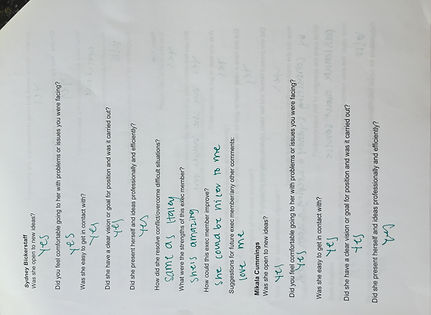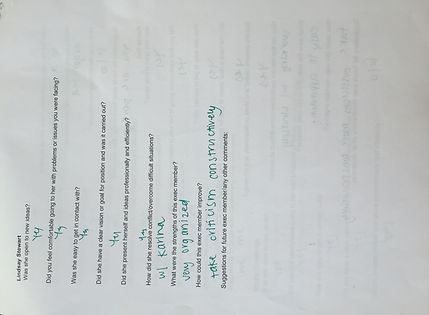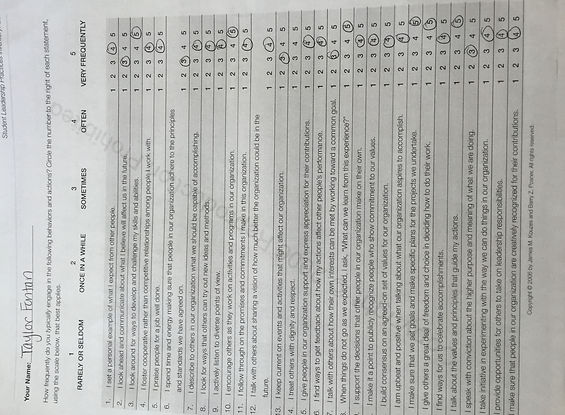
Self-Critique
Coming into college I got exactly what I needed: a reality check. I waved goodbye to the gold stars for turning in home work and flexible due dates and braced myself for the academically rigorous curriculum and professors who did not hold back their opinions.
Exposure to critique was formally introduced to my actions as an orientation leader. Throughout orientation parents and students filled out a form that analyzed different aspects of the program. Often times, the parent or student would not specifically point out a flawed orientation leader but even critiques to the program felt personal. Initially, I took these criticisms to heart and found them insulting however, as the summer went on I found the evaluations to be an effective tool for improvement.
Later in my college experiences, I encountered more direct critique. After serving on an executive board for a semester for Omega Phi Alpha, I sent out an evaluation to the chapter to gain feedback. In the fall of 2015 I created a survey that asked questions about my performance that semester. Below is a copy of one of the completed surveys. I was able to use this feedback to learn more about myself and created an environment in which I could mature and develop.
Eventually, after a variety of opportunities to use others to critique me, I made it a point to self-evaluate myself. I forced myself to answer the hard questions such as “Where can I be more effective?”, “Did this idea actually work?” and “What are my weaknesses?” Without questioning what I was doing, I would've never been able to track growth or identify new ways to make my current process better. In my POLI 215 class, I took a leadership survey that analyzed aspects of my leadership that were strong and others that were weak. This forced me to evaluate my leadership style with direct and detailed intention and to think critically about my actions and how people responded to them. Although I was using a template to critique myself, it was a vital step in learning how to ask myself difficult questions about my own performance.
In order to become a better leader and to learn how to grow from mistakes and triumphs, it is vital to evaluate oneself. From the experiences in orientation and Omega Phi Alpha with others critiquing me, I was able to use these forms of evaluation in order to frame a critiquing method for myself. These experiences also made me less sensitive to criticism allowing me to be more honest with myself in evaluating personal performance. Self-critique opens the door for growth improvement which is why this skill is vital to my personal development. Rationalizing situations in the past and drawing conclusions from those realizations has allowed me to have more clarity and prevents an inflated vision of myself and my accomplishments.
I saw this trend of the "illusion of confidence" in POLI 406 the State of American Politics. There is a trend in the American political system that the Constitution is unflawed and that it is the law of the land. Many people will not look to see the flaws in the document because they are confident that it is the best way of doing things. The text for this class presented various ways to alter the founding document. My midterm paper is one of the artifacts found below. This is a paper that evaluates the idea of term limits being introduced in the constitution. The theory of critiquing the Constitution materialized in the conclusions I was drawing from my out of the classroom because I assessed the weaknesses of something (the constitution) that I normally would not be comfortable criticizing. I would often time over estimate my successes and would have an overinflated view of my accomplishments. In some cases, I would not draw any conclusions or make inferences from my success or failures but rather just let them happen.
Throughout my college experiences I have recognized the importance of evaluation and also how to piece together the skills to self-critique. Self-critique has ironically shifted my focus from myself to others. When I try to be put my best self forward I know that I can impact others around me in the most profound way possible.






